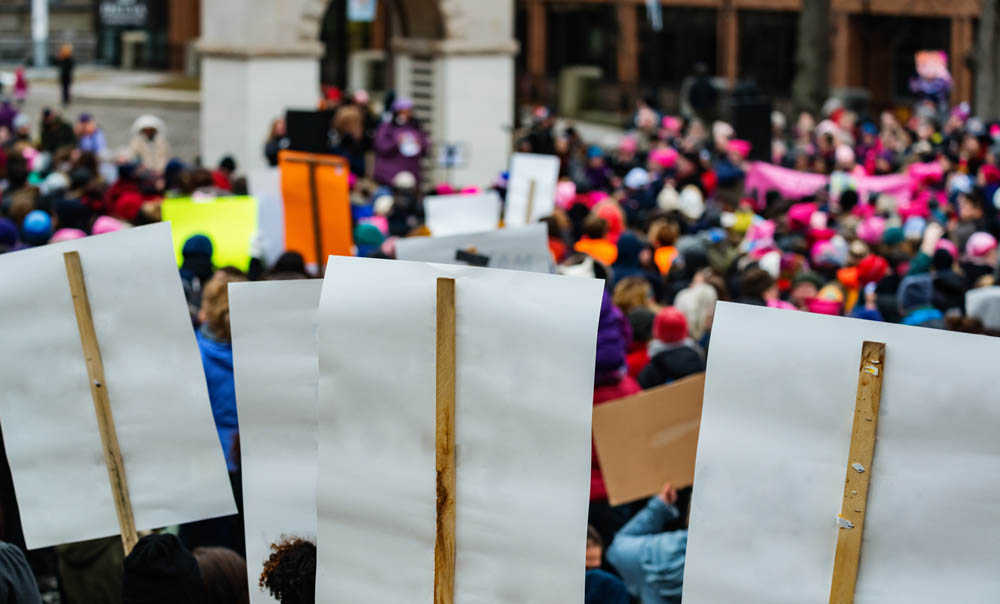Employees shouldn't be forced to pay fees when they don't support their local
Here’s a surprisingly controversial claim: Not only does the First Amendment guard your freedom to express your views, but it also protects you against being forced to support someone else’s.
The latter, called compelled speech, is at issue in Janus vs. American Federation of State, County and Municipal Employees, Council 31 — the Supreme Court case that is widely being interpreted as a life-or-death legal stand for public employees’ unions.
After it hears oral arguments later this month, the court will decide whether state laws allowing unions representing public employees to collect fees from workers who refuse to join the union, typically called agency fees, violate the First Amendment rights of those workers.
If it rules for the plaintiff, state and local government workers in 22 states — including New York — will no longer have to subsidize such unions as a condition of their employment.
Such a historic decision would overturn Abood vs. Detroit Federation of Teachers. In that 1977 case, the court accepted organized labor’s arguments that public workers should be required to contribute financially to their representation by unions. The unions’ legal contentions, then and now, are that “labor peace” and the elimination of “free riders” should supersede individual workers’ objections to compelled speech.
Let’s take those two ideas in order. To ensure labor peace, unions argue that a specific union must be the exclusive representative of all workers in a collective bargaining unit. The union can bar individual workers and other unions from negotiating with management.
Enforcing a single bargaining unit is a problem, however, as any individual worker will be better off if he refuses to join while still reaping the benefits. To remove this incentive to “free ride,” unions enlisted government to pass laws that require workers to support the union.
The Abood ruling said it was constitutional for unions to charge nonmembers an agency fee, or fair-share fee, for acting on their behalf in collective bargaining and contract administration. This fee is often set as nearly identical to union dues.
If nonmember workers want to get back some of their money that is spent on politics, they must register as “objectors,” usually by writing an annual letter demanding their money not be used to sponsor political activities.
Then the union decides what percentage of that worker’s fees it spent on politics versus nonpolitical collective bargaining and sends the worker a check in the mail.
From a union preservation perspective, the logic makes sense. But these arguments shouldn’t give the government the right to infringe on the free-speech rights of workers who do not wish to contribute to unions.
Under current law, a slice of public employees, perhaps as large as 20% to 30%, do not want to subsidize union political activity but, directly or indirectly, are forced to.
That means, by default, they are forced to pay for union political and ideological activities. While workers can opt out of explicitly political spending, the process is hardly fair. As Justice Lewis Powell wrote in his Abood concurrence, requiring objectors to opt out places a heavy “burden on the individual” to “step forward, declare their opposition to the union, and initiate a proceeding.”
Which is to say, it impinges on First Amendment rights. If a worker is shy, intimidated or neglectful, for example, they will end up subsidizing speech they never approved of. And even if a worker renounces his or her union membership and registers as an objector, the union still gets to determine what is political spending and what isn’t. Objectors only get a refund of the percentage of their contributions that the union says it spent on politics.
No one should be surprised that unions often make these distinctions with their own interests in mind. It is no wonder public unions say they spend very little on politics.
Furthermore, attempts to separate union expenditures on collective bargaining from those spent on politics collapse in the public sector because it is nearly impossible to distinguish one from the other. As Justice Samuel Alito pointed out in Harris vs. Quinn, this is because “both collective bargaining and political advocacy and lobbying are directed at the government.”
In the private sector, on the other hand, Alito noted that the line “between union expenditures that are made for collective-bargaining purposes and those that are made to achieve political ends . . . is easier to see.”
Finally, money is fungible. So even if unions only collect fees for nonpolitical purposes, such extra revenue frees up money for politics. In that sense, nonmember fees always contribute to political activity.
Which means, if you force an employee to fund a public-sector union, there will always be First Amendment violations.
This piece originally appeared in the New York Daily News
______________________
Daniel DiSalvo is a senior fellow at the Manhattan Institute and associate professor of political science at the City College Of New York (CUNY). Follow him on Twitter here.
This piece originally appeared in New York Daily News
